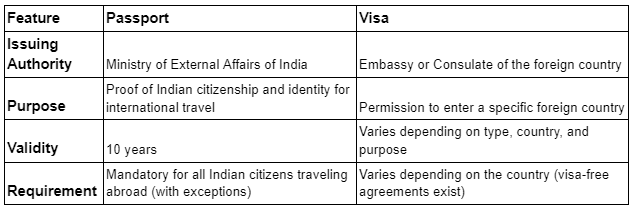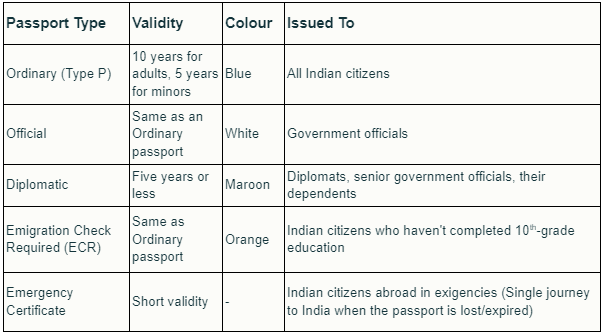Important Facts For Prelims
Diplomatic Passport
- 04 May 2024
- 3 min read
Why in News?
Recently, the topic of diplomatic passports has been in the news, particularly in relation to the power regarding the issuance and revocation of diplomatic passports.
- A passport is an official government-issued document that serves as a form of identification and travel document for individuals who wish to travel internationally.
What is a Diplomatic Passport?
- About:
- Diplomatic passports are issued to individuals representing a country on official diplomatic missions or government business.
- They are used by diplomats, government officials, and sometimes their immediate family members.
- These passports are a form of identification and carry certain legal privileges and immunities under international law, such as immunity from arrest, detention, and certain legal proceedings in the host country.
- Eligibility: In India, the Ministry of External Affairs' Consular, Passport & Visa Division issues diplomatic passports, also known as 'Type D' passports, to individuals falling into several categories:
- Government-appointed individuals and officers working under branches A and B of the Indian Foreign Service (IFS) traveling abroad for official business
- Select individuals on official travel, including union ministers and Members of Parliament (MPs).
- Revoking Power:
- The authority to revoke a diplomatic passport lies with the passport authority.
- However, the government can revoke a diplomatic passport only after a court order to that effect.
- Under the Passport Act of 1967, a diplomatic passport may be revoked if the holder is in wrongful possession, obtained it through suppression of material information, if the passport authority deems it necessary for India's interests, or if the holder has been convicted or is facing criminal proceedings in India.
- The authority to revoke a diplomatic passport lies with the passport authority.
- Difference Between Passport and Visa:
International Law Covering Diplomatic Passports
- Vienna Convention on Diplomatic Relations:
- This convention outlines the rules for diplomatic law, including the privileges and immunities of diplomatic passport holders.
- Operational Visa Exemption Agreements:
- It allows diplomatic passport holders to visit these countries without a visa for stays up to 90 days, provided their travel is not for private purposes.
- India has operational visa exemption agreements with 34 countries, including Germany, for holders of diplomatic passports.






